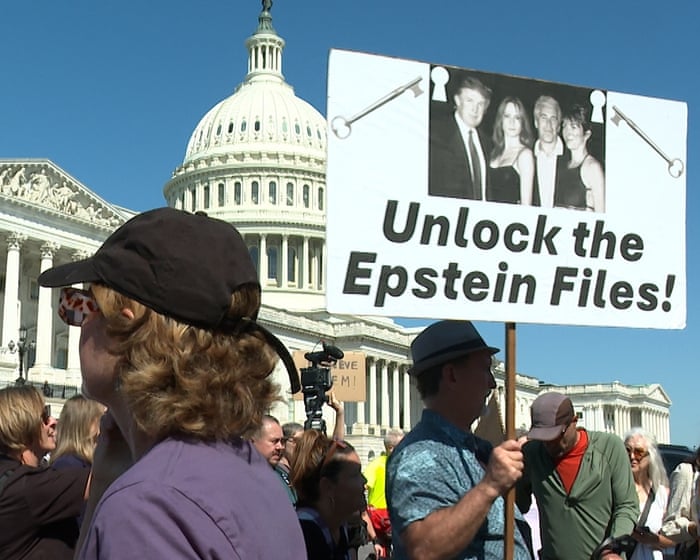Cipru a primit cu bine demisia trimisului comercial al Regatului Unit în Turcia, Afzal Khan, considerând că trimite un mesaj puternic în contextul criticilor aduse vizitei recente a deputatului laburist în partea nordică a insulei, ocupată de Turcia.
Khan și-a apărat călătoria din 8 august într-o scrisoare adresată primului-ministru britanic Keir Starmer, susținând că a avut loc în nume personal, în timpul vacanței parlamentare. Totuși, recunoscând reacțiile negative, deputatul din Manchester Rusholme – care s-a confruntat cu cereri de demisie – a declarat că a considerat oportun să renunțe pentru a nu distrage atenția de la eforturile guvernului de a încheia acorduri comerciale.
La scurt timp după ce guvernul britanic a confirmat demisia sa sâmbătă, ministerul de externe cipriot a descris-o drept o „dezvoltare importantă”, subliniind că nu trebuie să existe toleranță față de o entitate recunoscută doar de Turcia.
Într-un comunicat, ministerul a afirmat că vizita lui Khan în zonele ocupate ale Ciprului și întâlnirea cu liderul nordic, Ersin Tatar, au fost „inacceptabile și provocatoare”. A adăugat că acest episod trimite un mesaj clar că astfel de acțiuni nu pot fi tolerate, avertizând despre consecințe politice pentru cei care sprijină sau legitimează regiunea separatistă.
Ciprul este divizat din 1974, când o lovitură de stat sprijinită de junta militară greacă a determinat Turcia să invadeze, invocând necesitatea de a proteja ciprioții turci. Invazia în două faze a lăsat forțele turce în controlul a 37% din insulă, determinând mii de oameni să fugă – ciprioții greci spre sud, iar ciprioții turci spre nord.
În 1983, nordul a declarat unilateral independența, dar niciun stat în afară de Turcia nu o recunoaște. Marea Britanie, putere garantă, a condamnat acest pas la ONU, iar guvernele britanice succesive au refuzat relații diplomatice cu entitatea separatistă.
În ciuda eforturilor liderilor ciprioți turci de a obține recunoaștere, doar Republica Cipru din sudul vorbitoare de greacă este recunoscută internațional. Când Starmer a vizitat Ciprul anul trecut – fiind primul prim-ministru britanic care a făcut acest lucru în peste 50 de ani – a refuzat să se întâlnească cu Tatar, alegând să discute cu președintele cipriot Nikos Christodoulides.
Turcia menține încă aproximativ 35.000 de soldați în nord.
Sâmbătă, Tatar – un naționalist care susține o soluție în două state – a criticat presiunile asupra lui Khan, afirmând că deputatul a vizitat la invitația sa. El a numit demisia un „semnal de avertizare” pentru cei care cred în democrație și egalitate.
Grupurile de diaspora cipriotă din Marea Britanie, unde locuiesc mulți ciprioți greci și turci care au fugit după 1974, au spus că vizita lui Khan a fost deosebit de lipsită de sensibilitate, întrucât a coincis cu cea de-a 51-a aniversare a celei de-a doua faze a invaziei. Incidentul a început la mijlocul lunii august 1974, în paralel cu eforturile ONU de a relua negocierile pentru reunificarea insulei.
Christos Karaolis, președintele Federației Naționale a Ciprioților din Marea Britanie, a declarat: „Afzal Khan a făcut bine să demisioneze din funcția de trimis comercial al Regatului Unit în Turcia după vizita sa profund nepotrivită și inacceptabilă în nordul ocupat al Ciprului. Acțiunile sale au subminat politica de lungă durată a Regatului Unit față de Cipru, au încălcat dreptul internațional și au arătat lipsă de respect față de comunitatea noastră de ciprioți britanici – mulți dintre ei fiind refugiați sau descendenți ai celor forțați să-și părăsească casele în timpul invaziei turce din 1974. Așteptăm acum cu interes continuarea colaborării cu guvernul britanic în sprijinul unui Cipru liber și unit.”
ÎNTREBĂRI FRECVENTE
### **Întrebări frecvente despre reacția Ciprului la demisia trimisului comercial al Regatului Unit**
#### **Întrebări de bază**
**1. De ce a primit Cipru cu bine demisia trimisului comercial al Regatului Unit?**
Cipru a primit demisia cu bine deoarece trimisul a vizitat partea nordică a insulei, care este ocupată de Turcia și nu este recunoscută internațional. Vizita a fost considerată o subminare a suveranității Ciprului.
**2. Care parte a Ciprului este ocupată de Turcia?**
Partea nordică a Ciprului este ocupată de Turcia din 1974. Doar Turcia o recunoaște drept „Republica Turcă a Ciprului de Nord”, în timp ce restul lumii o consideră parte a Republicii Cipru.
**3. Cine a fost trimisul comercial britanic care a demisionat?**
Trimitul a fost un oficial britanic desemnat să promoveze comerțul între Regatul Unit și Cipru. Numele său nu a fost larg mediatizat în rapoarte.
**4. De ce a fost controversată vizita sa în nordul Ciprului?**
Vizita a fost controversată deoarece Regatul Unit, ca majoritatea țărilor, nu recunoaște nordul Ciprului ca stat separat. Călătoria a fost percepută ca o legitimizare a ocupației turce.
#### **Întrebări avansate**
**5. Cum vede oficial Regatul Unit nordul Ciprului?**
Regatul Unit, la fel ca ONU și UE, recunoaște doar Republica Cipru ca guvern legitim al întregii insule. Nu recunoaște autoproclamata RTCN din nord.
**6. Ce impact ar putea avea această demisie asupra relațiilor dintre Regatul Unit și Cipru?**
Demisia ar putea reduce tensiunile, deoarece Cipru a considerat acțiunile trimisului ca lipsite de respect. Totuși, relațiile pe termen lung depind de continuatul sprijin britanic pentru suveranitatea Ciprului.
**7. S-a mai întâmplat asta cu alți diplomați?**
Da, au existat incidente similare în care oficiali străini care au vizitat nordul Ciprului fără aprobare au întâmpinat reacții negative, deoarece acest lucru încalcă normele internaționale privind integritatea teritorială a Ciprului.
**8. Care este poziția ONU față de nordul Ciprului?**
ONU consideră nordul Ciprului teritoriu ocupat și susține discuțiile de reunificare în cadrul unei soluții federale, respectând suveranitatea Ciprului.
#### **Implicații practice și politice**
**9. Pot străinii călători în nordul Ciprului?**
Da, dar intrarea din nord în loc din Republica Cipru este considerată ilegală de guvernul cipriot. Majoritatea călătorilor intră prin aeroporturile recunoscute din sud.



